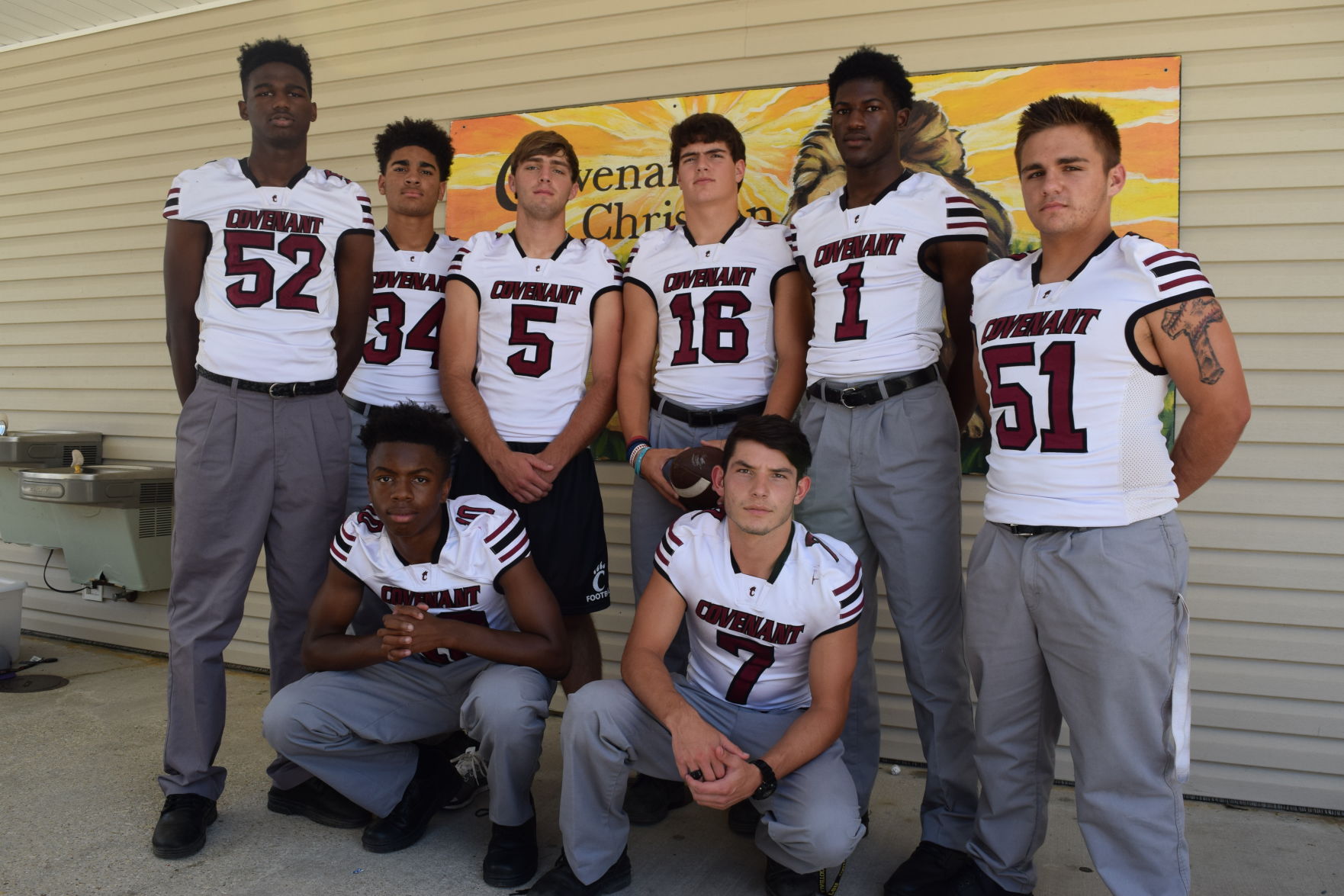
CCA out, but Lions are still proud of successes
November 21, 2016
Local businesses prepare for Black Friday rush
November 22, 2016Aaron Dardar lives in two worlds.
In one of those worlds, the soft-spoken, androgynous South Terrebonne High freshman is surrounded by family members who recognize that Aaron, born a female, identifies as male, and have been accepting and supportive through his sometimes bumpy journey.
In the other, Aaron is tormented by bullying schoolmates whose behavior, he and family members say, has gone unchecked by school officials, and been dealt with by restrictions placed on the victim rather than consequences meted out to victimizers. Records and information supplied by Aaron’s family including a recording of a meeting with school officials appear to verify some of their concerns. School officials – limited in what they can publicly say because of strict laws regarding student confidentiality – indicate a desire to help, but also cite limited options.
Terrebonne Superintendent of Schools Philip Martin said last week that he cannot discuss matters relating specifically to Aaron, although there are strong indications that Aaron’s situation is very much on his radar. After being told of matters being examined by The Times, Martin made a statement indicating his administration’s overall goals and philosophy.
“We want any student to go to school and feel comfortable with any situation they will encounter in school, and that is the case for every kid,” said Superintendent of Schools Philip Martin. “We want every child to go to school without any type of apprehension, fear or anxiety, and will work with any parent.”
AFRAID FOR MY CHILD
Those goals are not being met in Aaron’s situation, he and his parents maintain. They continue to work with school administrators to find solutions, but say progress is needed to ensure Aaron’s safety and well-being, as well as that of other students whose trials may not have come to official attention.
“I am afraid for my child,” said Aaron’s mother, Amber Smith. “You can have all the support at home there is, but going through school should not be a fearful thing, especially for someone with so many goals and so much potential. My child is being deprived of an education because of fear.”
Among the specific problems Aaron and his parents allege this school year:
* Physical abuse by an upperclassman including an incident where Aaron was allegedly shoved down stairs.
* Failure of administration officials to report that incident to the police.
* A Physical Education class change without notification, allegedly due to discomfort some girls had with having Aaron in their class.
* Inability to use bathrooms because of taunting and harassment by bullying girls.
* Allegedly inadequate policies and practices for bullying intervention.
—
“Schools have an obligation to protect all of their students, to create an environment in which all students are supported and equally protected,” said ACLU Louisiana Director Marjorie Esman, after being informed of Aaron’s difficulties. “A school needs to create an environment in which everybody is respected for who they are, that is their responsibility.”
GUIDANCE AVAILABLE
The ACLU is a major contributor to a landmark guide for schools, along with the National Education Association, the Human Rights Campaign Foundation and other groups. The report, “Schools In Transition,” notes the multiple challenges facing schools with even the best intentions of supporting transgender students.
“Educators may have concerns about their own capacity to support their transgender students, or hesitate to act because of personal feelings or fear of negative reactions from the larger community,” the report states. “Similarly, families and caregivers are sometimes uncertain about what support their child needs in school or question the school’s commitment to the well-being of their child. This dynamic can create an adversarial relationship among the very individuals working to support the student. Finally, transgender students themselves may struggle with a variety of issues in seeking to be authentically seen, including the fear of social rejection and mistreatment or abuse from peers. As a result, many of these students hope to escape notice and to simply survive rather than flourish.”
The report includes a model assessment form to aid schools in meeting the needs of transgender students. It provides for a plan that advance-plans for issues that include pronoun use, bathroom assignment, and designation of a “go-to” adult at school for help when problems arise. Terrebonne does not have such an assessment tool, which experts say is critical for ensuring that all responsible for a child’s well-being are on the same page. Teachers and administrators have been forced to use their individual best judgements when dealing with transgender children.
MIDDLE SCHOOL HELL
Aaron’s own detailed, written account of years in the Terrebonne Parish school system as a child in transition brings into focus years of pain and self-doubt, along with significant instances of abuse by peers.
“I recall that in sixth grade I was called ‘ugly’ or told that my hair was too big … I would never have assumed that in the future things would get worse for me at school,” Aaron wrote, noting that name-calling began that year. By seventh grade he was routinely referred to as a “s**t,” “w***e,” “d**e” and “f****t.”
“The teachers heard me being called these names and they seen me cry, but they never stopped to help me or ask if I was okay.”
Complaints to a guidance counselor, Aaron said, were dismissed as “just girl drama.”
Labeled as bisexual by classmates – despite his denials – Aaron at the time secretly determined that he was a lesbian. There were suggestions from fellow students to “kill yourself” or “just die.”
“I recall going to bed each and every night crying because I was afraid of the next day,” Aaron said, acknowledging that he did not discuss the issue with his parents because “I was ashamed.”
Silence about sexuality ended in eighth grade, when Aaron came out to his parents as a lesbian. While the adjustment was difficult – and unexpected – Amber said she had no choice but to be supportive in every possible way.
“I refused to make my child’s life any harder than it has to be just because I don’t understand something,” Amber maintains.
Heartbroken when they learned of the difficulties Aaron had endured, they tried to comfort, and as high school approached they offered hope.
“They told me high school would be better than middle school, that the bullying would stop because people would mature,” Aaron said. “How wrong they were.”
BATHROOM LUNCH
At South Terrebonne High School a boy pushed Aaron down a stair while uttering the word “f****t.”
“I had bruises on my leg for over a week after I was pushed,” said Aaron, who later encountered girls ordering him out of the bathroom because he looked like a boy, calling him a “pervert.”
This proved problematic additionally because Aaron, trying to avoid contact with other students during free time, sometimes ate lunch in the bathroom.
Abuse at South Terrebonne continued, including an incident where Aaron said he was punched.
Initially, he could not identify his attacker, whose name he did not know at the time. School officials showed him photos of athletes, a category the attacker belonged to. But identification could not positively be made. Administrators at that point, according to available records that include a recorded discussion with Aaron’s mother and another relative, did not take the matter further, and no report to police was made.
Days of name-calling and the physical abuse, Aaron said, resulted in a tougher exterior, brought on, he said, by becoming “numb.”
“I was a walking zombie,” said Aaron, who had come to realize that his identity was actually male. He did not discuss his transgender status, but when schoolmates asked he didn’t lie either.
Remarks were made out of ignorance – one boy tried to convince Aaron that if he didn’t have male genitalia then he was not transgendered – and personal questions from other students made things worse. On Aug. 31 Aaron received a new schedule, with a change of P.E. class to a different period. Administrators said it was done out of a need to balance out the number of students in each class.
But Aaron had observed girls who had been unkind to him talking to a teacher prior to the switch. Another girl, who has been friendly, told him the girls were uncomfortable with what they had come to know as his identity, that they were afraid he would be having “boy thoughts” about them.
Yet another schedule change came later. The second move was to avoid harassment of Aaron by a group of athletes he was required to pass in order to get to that class during 7th period. Aaron’s parents maintain that the school does not need to be shifting any student around merely because some others are uncomfortable with that child’s presence, and certainly not because of harassment from a group of students.
KEYLESS SOLUTION
Rumors about untoward behavior – which Aaron denies and which have not been verified by school officials – led to harassment by members of the football team, he said.
“The football team started messing with me very badly so I went to the office to talk about it, and the assistant principal wanted me to speak to a counselor,” said Aaron. As Aaron’s story was disclosed, administrators began taking steps to better ensure Aaron’s safety and sense of security.
He was given permission to use a faculty restroom. But that solution has also proved problematic, because the faculty member authorized to let Aaron in with a key could not be found at a time of need. There are indications that a new solution – issuance of key – may help that situation. But as of the Thanksgiving break, the matter was still unresolved.
Aaron was instructed to report any further problems to one of several administrators or to any teacher.
Once more fully advised of the situation, administrators were better equipped to deal with it, Aaron’s family acknowledges. There was no lack of willingness, although lack of facility is alleged. Teachers and students at STHS, for example, have had no problem using the appropriate gender pronoun for Aaron’s identity. And while his official registration is in his female name, teachers follow his wishes when addressing him.
But to prevent future pain for other students – as well as to help Aaron navigate more easily through high school – family members say more needs to be done.
“The principal was very honest with me when he said they didn’t have any resources available to them on how to handle children that are non-gender conforming,” said Aaron’s stepmother, Shirelle Parfait-Dardar, who is Traditiona Chief of the Grand Caillou-Dulac Band of Biloxi-Chitimacha-Choctaw people. “He wasn’t aware that there are things available to them. You need to have all of the resources available to you to help your students.”
Her contention is verified by the recording of that meeting, which was made available by the family to The Times.
“That is not special treatment,” Parfait-Dardar said. “We didn’t ask for special treatment. And they already have a policy which states once there is a physical altercation they are supposed to contact the Sheriff’s Office and that is not being done. It makes no difference what the issue is or who the children involved are.”
IT GETS BETTER
The family said they are willing to help with any resources the school system might need to spare other transgender children heartbreak or worse in the future.
Aaron realizes his difficulties are not over. But the show of support from family and the knowledge that telling his story might help others who suffer in silence, he acknowledges, is helping.
“I would usually wake up in the morning dreading the thought of going to school,” he said. “I would fight myself to get out of bed but now I don’t care, everybody knows who I am.”
Breaking the silence, Aaron said, is the first step.
“Make sure that the person you are telling is someone you are comfortable telling and that you know them personally, that they are an accepting and loving person that when you tell them you will be safe,” is Aaron’s advice. “No matter what people do, you should tell because that can affect a person very badly and you don’t know how far that might affect them.”
Noting as well that non-offending students witnessed much of his torment but remained silent, Aaron wants other students no matter what grade to know that if they see something they should say something.”
“If that person is affected by it you don’t know how far they might take it,” Aaron said. “If they do something regrettable you might have thought ‘I could have prevented this.’”
Attempts to reach South Terrebonne principal Mark Torbert were not successful at press-time. •














